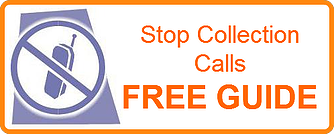Too much debt, not enough money! What can I do? 
First, you need to find out exactly how much money you have coming in and how much is going out each month.
Most people really don’t have a budget to keep track of their finances.
When you know exactly how much money you have (or how little), then and only then, can you decide which solution would be best for you.
OK, you need $500 just to make the minimum payments on your credit cards, but only have $350 or so after all other bills are paid.
Does it really make sense to continue making the minimum payments required by each of your creditors?
Consumers do not understand that the Credit Card Industry does not want, nor expect you to ever fully repay your accounts! Billions of dollars of interest and fees are earned from people just like you, who only pay the minimum payment each month.
It is estimated that in takes the average consumer 15-20 years to repay a single account at a cost of 3-4 times the total amount charged! There’s got to be a better solution, and there is.
Debt Management (sometimes called Credit Counseling) programs? How do they work?
Most unsecured creditors will participate in a Debt Management Program (DMP). To determine if you qualify, information about your accounts will be entered into a national data base.
-
Name of the creditor
-
Account number
-
Current Balance
-
Interest Rate
-
Payment
If you qualify you will have:
-
One monthly payment disbursed to each of your creditors according to the accepted proposal.
-
Lower over-all interest and fees allowing you to pay off these accounts in 48 months or so saving you thousands of dollars in interest and fees.
Although your credit score may decline slightly while you are in the program, once you have completed the program your scores will improve. For more information, visit www.myfico.com
No creditors are calling as they are receiving monthly payments according to the program.
But what if after completing the Household Budget Worksheet and examining the Debt Management Program you simply do not have enough left over at the end of the month?
Then, a Debt Settlement Program (DSP) may be your best solution.
Debt Settlement is a program designed for those who are…
- Facing severe financial hardship due to circumstances beyond their control (loss or lower income due to unemployment, lay-offs, divorce, disability, insufficient retirement income, etc.)
- Have considered a Debt Management Program (above), but simply cannot qualify or afford the monthly payment required.
- Do not want to file for bankruptcy at this time.
How does a Debt Settlement Program work?
If you have fallen behind in making your minimum payments (or are about to), rather than continuing make payments, you will deposit an amount you can afford into a savings account or into an account set up by a qualified Debt Settlement Company.
Once there is sufficient funds to make a settlement offer, the creditor is contacted and a settlement is negotiated.
Most creditors will accept a settlement, but there are some cases where a creditor may attempt to seek legal action in order to collect the full balance.
But, successful settlements can still be made in spite of a judgment, as creditors would rather accept a settlement offer than force you to consider bankruptcy.
For those of you who are self-employed, retired and/or receiving Social Security and/or Disability benefits or income from a pension or retirement plan, then you are most likely exempt from any legal action from a creditor.
Once you or a professional negotiator has arranged a settlement, the account is now listed on your credit report as “paid-as-agreed” or "settled-as-agreed" with a zero balance.
Debt Settlement can be a time-consuming venture and you may not get as good of a settlement as a professional debt settlement company.
It might be in your best interest to request a FREE Analysis from a qualified company.
Photo by Caston Corporate





 Help! I've been scammed!
Help! I've been scammed! 
 A collector threatens you with a possible wage garnishment.
A collector threatens you with a possible wage garnishment. 


 Is the anything you can do to stop wage garnishment?
Is the anything you can do to stop wage garnishment?



